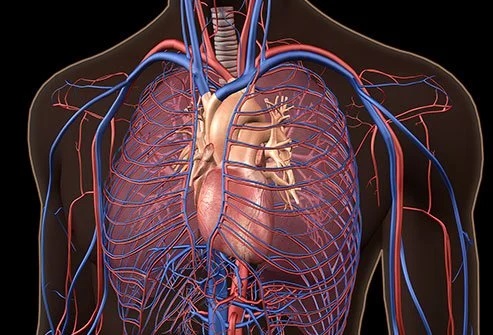Professor Luke Howard
Respiratory Consultant
Specialist expertise: Cardiopulmonary Exercise Test (CPET), Pulmonary Embolism, Pulmonary Hypertension, Right Heart Catheterisation, Breathlessness, Exercise Intolerance, Respiratory Medicine.
Pulmonary hypertension is high blood pressure in the blood vessels that supply the lungs (pulmonary arteries).

Pulmonary hypertension is a condition that refers to increased blood pressure in the blood vessels in the lungs due to narrowing and/or blockage. It’s a very serious condition as it disrupts the flow of blood through your heart and lungs. This puts strain on these organs and can lead to heart failure if left untreated.
Pulmonary hypertension is a rare condition but is more common in people who have another heart or lung condition. Although rare, the condition can affect people of all ages, so it’s important to be aware of the symptoms for early diagnosis and successful treatment.
Pulmonary hypertension comes as a result of changes in the cells that line pulmonary arteries, which causes the walls of the arteries to become stiff, swollen and thick. There are a number of causes for this including:
Some people will have no symptoms in the initial stages of pulmonary hypertension. However, it’s common for the first symptom to be shortness of breath.
Other symptoms include:
Symptoms tend to start out mild and worsen as the condition progresses. It’s important to see a respiratory specialist as soon as you notice any of these symptoms so that you can start treatment quickly.
The symptoms of pulmonary hypertension are similar to those of many other heart and lung conditions, so a number of tests are required to make a correct diagnosis, determine the cause and define treatment. These may include blood tests, lung function and exercise testing, a chest x-ray, an electrocardiogram (ECG), an echocardiogram, cardiac MRI, CT scan, ventilation-perfusion scan, ultrasound of the liver and cardiac catheterisation.
Pulmonary hypertension cannot be cured, but there are treatments that help to reduce symptoms and slow the progression of the condition.
If the condition is caused by an underlying medical problem, this will be addressed first. Other treatments include medications such as anticoagulants (blood thinners), vasodilators (blood vessel dilators) and diuretics (water pills), oxygen therapy, surgery and dietary and lifestyle changes.
Currently selected day
Available consultations
Causes
Connective tissue diseases, COPD, ILD, cardiac c...
Symptoms
Shortness of breath, chest pain, dizziness
Treatment
Reducing symptoms, medications, lifestyle factor...
We’ve invited the UK’s best respiratory specialists to join us as partners, with the freedom to make design and delivery decisions based on what’s best for patients.